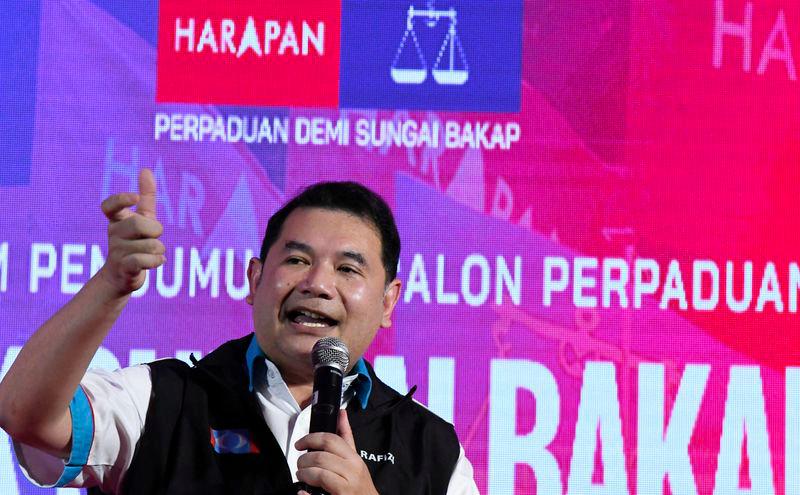PETALING JAYA: The government is currently evaluating the need to implement subsidy rationalisation for RON95 petrol, said Economy Minister Rafizi Ramli.
Despite the evaluation, Rafizi said at the time being, the focus and priority will be given to the implementation of the diesel subsidy rationalisation which kickstarted from June 10 until the subsidy targets stabilises.
At the same, Rafizi said the evaluation was to strengthen fiscal sustainability of the country and reduce leakages in the distribution of diesel subsidies.
“If the subsidy rationalisation on RON95 petrol is implemented in the future, the government will take appropriate measures to ensure that the affected people will be given appropriate assistance,“ he said in a written reply in the Dewan Rakyat, yesterday.
He was responding to a question by Dr Radzi Jidin (PN-Putrajaya) on when the targeted subsidies will be fully implemented as stated by the Prime Minister Datuk Seri Anwar Ibrahim on November 27, 2022 and whether the targeted subsidy for petrol will be implemented this year, in addition to the government’s guarantee that the price of goods will not continue to increase after the targeted subsidy is implemented.
ALSO READ: Diesel subsidy rationalisation having positive impact - Amir Hamzah
Rafizi explained that the implementation of subsidy rationalisation will also help the government strengthen its fiscal position and optimise its available resources.
“Savings from the targeted subsidy initiative will be returned to the people through the implementation of programmes and projects that are more beneficial and really needed by the people, such as improvements in the provision of social services and public facilities, including health, education, transport and security,“ he said.
Additionally, in a written reply to Datuk Mohd Shahar Abdullah (BN-Payar Besar), Rafizi said that the realignment of fuel subsidies is expected to have an impact on the country’s inflation rate.
However, he said, a well-designed strategy together with targeted cash assistance will help reduce the impact.
He said for example, the government still subsidies and maintains diesel prices at RM2.15 per litre for 23 types of logistics vehicles through the Subsidised Diesel Control System (SKDS) 2.0.
ALSO READ: Diesel subsidy retargeting to boost fiscal health, reforms - Senator
In addition, he also pointed out that diesel prices remain at RM1.88 per litre for land public transport including school buses, express buses, ambulances and firefighters, while the rate of RM1.65 per litre is maintained for fishermen as the government also provides BUDI MADANI cash subsidy assistance.
“Bank Negara Malaysia (BNM) through its publication of the 2023 Economic and Monetary Outlook expects the implementation of subsidy rationalisation to have short-term implications for the country’s inflation rate.
“The inflation rate for 2024 is projected to be between two to 3.5%. This situation is partly due to the gradual shift towards a targeted subsidy implementation mechanism, especially involving fuel subsidies,“ he said.
Rafizi further said that the government’s fiscal position is increasingly challenging and requires a commitment to retarget the subsidy which is one of the main components in the national operating budget.
“The welfare of the people as a whole is still a priority. Therefore, the government needs to choose a method of retargeting subsidies that can balance the government’s goal to improve the fiscal position and at the same time, reduce the impact on the cost of living borne by the people,“ he said.
ALSO READ: Diesel subsidy not withdrawn, now targeted to specific groups - KPDN
Regarding mitigation measures, Rafizi said, based on projections made by several international organisations such as S&P Global, EIU and Bloomberg, the average global price for Brent oil is projected at US$85 (RM400) per barrel for 2024.
“However, if oil prices rise sharply, the government through the Finance Ministry, BNM and the Economy Ministry will conduct a review according to current needs.
“This is to ensure that the people, especially the low-income group, are not burdened by any price changes,“ he said.









